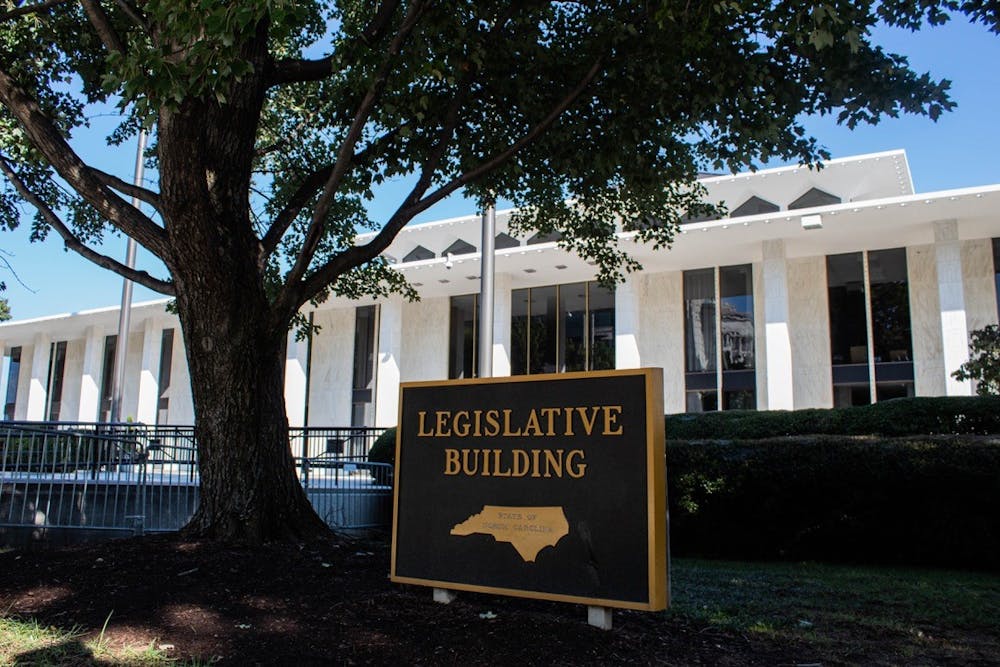The North Carolina General Assembly passed a series of new district maps, including ones for the State House and the Senate, along with a new congressional map for the U.S. House of Representatives on Oct. 25.
Elon professor of political science Jason Husser, who has expertise in North Carolina politics, said the new maps will put Republicans at an advantage.
“Republican maps are drawn in a way that greatly favors Republican candidates in a way that is disproportionate to the number of Republican voters in the state,” Husser said. “As a result, it will very likely lead to a Republican majority representation in Washington for the North Carolina delegation.”
The U.S. House of Representatives currently has a slim 221-212 Republican majority. These new maps will provide Republicans with an advantage in North Carolina seats in the House. Currently, North Carolina has 14 representatives in congress, with seven Democrats and seven Republicans.
Rep. Kathy Manning, a Democrat who represents North Carolina’s sixth congressional district in congress, is one of the lawmakers who will face a challenge for re-election prospects in 2024. Her district, which includes parts of Guilford, Forsyth, Rockingham and Caswell counties, was redrawn in these new maps to include counties as far west as Watauga county and as far east as Rockingham county, which includes Boone and Greensboro.
Manning’s office did not respond to Elon News Network’s repeated requests for comment.
Currently, Alamance County is part of North Carolina’s fourth congressional district, which is represented by Democrat Rep. Valerie Foushee. The new map will place Alamance in the 9th congressional district, which Republican Rep. Richard Hudson represents.
In response to the new congressional district map, Rep. Jeff Jackson – a Democrat of Charlotte – announced that he will not seek reelection in congress. Instead, Jackson has announced he is running for North Carolina Attorney General.
“A group of politicians … just redrew my congressional district to take me out, they are going to replace me with one of their political allies — that’s political corruption,” Jackson said in a video message where he announced his bid for North Carolina Attorney General.
Republican state Sen. Amy Galey’s district includes both Alamance county and parts of Randolph county and will not change in Alamance County, while there will be slight differences in Randolph County in the map.
Sen. Amy Galey’s office declined Elon News Network’s request for comment on redistricting due to possible map litigation.
There will be some changes between State House districts in Alamance County with the new map. Alamance County is made up of both the 63rd and 64th districts.
State Democrats, including Gov. Roy Cooper, have accused Republicans of partisan gerrymandering with these new maps. Cooper can not veto the maps.
"Enabled by the State Supreme Court’s partisan reversal of constitutional law, Republican legislators have rolled out their latest illegal maps that show gerrymandering on steroids,” Cooper wrote in a press release. “Drawn in the back room and armed with their new law that keeps their plotting secret, they have used race and political party to create districts that are historically discriminatory and unfair."


